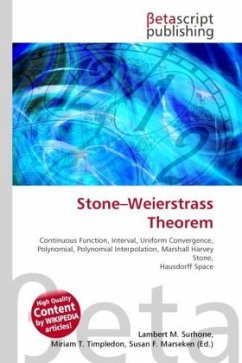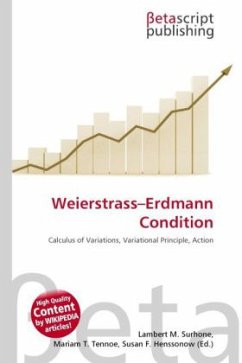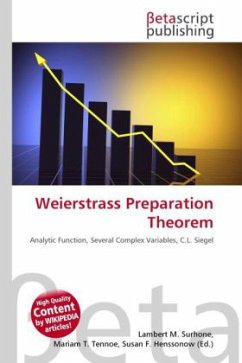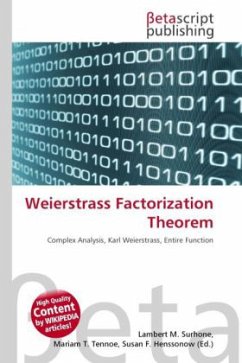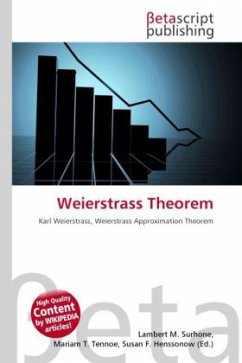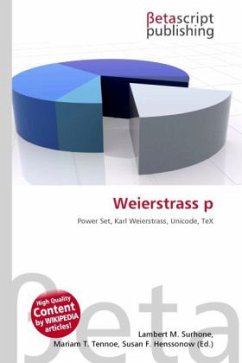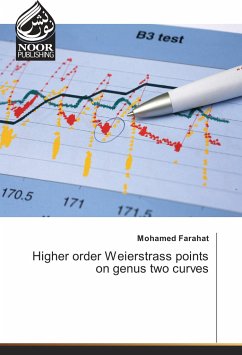
Weierstrass Transform
Versandkostenfrei!
Versandfertig in 6-10 Tagen
26,99 €
inkl. MwSt.

PAYBACK Punkte
13 °P sammeln!
High Quality Content by WIKIPEDIA articles! The Weierstrass transform F can be viewed as a "smoothened" version of f: the value F(x) is obtained by averaging the values of f, weighted with a Gaussian centered at x. The factor 1/ (4 ) is chosen so that the Gaussian will have a total integral of 1, with the consequence that constant functions are not changed by the Weierstrass transform. The Weierstrass transform is intimately related to the heat equation (or, what is the same thing, the diffusion equation with constant diffusion coefficient). If the function f describes the initial temperature ...
High Quality Content by WIKIPEDIA articles! The Weierstrass transform F can be viewed as a "smoothened" version of f: the value F(x) is obtained by averaging the values of f, weighted with a Gaussian centered at x. The factor 1/ (4 ) is chosen so that the Gaussian will have a total integral of 1, with the consequence that constant functions are not changed by the Weierstrass transform. The Weierstrass transform is intimately related to the heat equation (or, what is the same thing, the diffusion equation with constant diffusion coefficient). If the function f describes the initial temperature at each point of an infinitely long rod that has constant thermal conductivity equal to 1, then the temperature distribution of the rod t = 1 time units later will be given by the function F. By using values of t different from 1, we can define the generalized Weierstrass transform of f.



